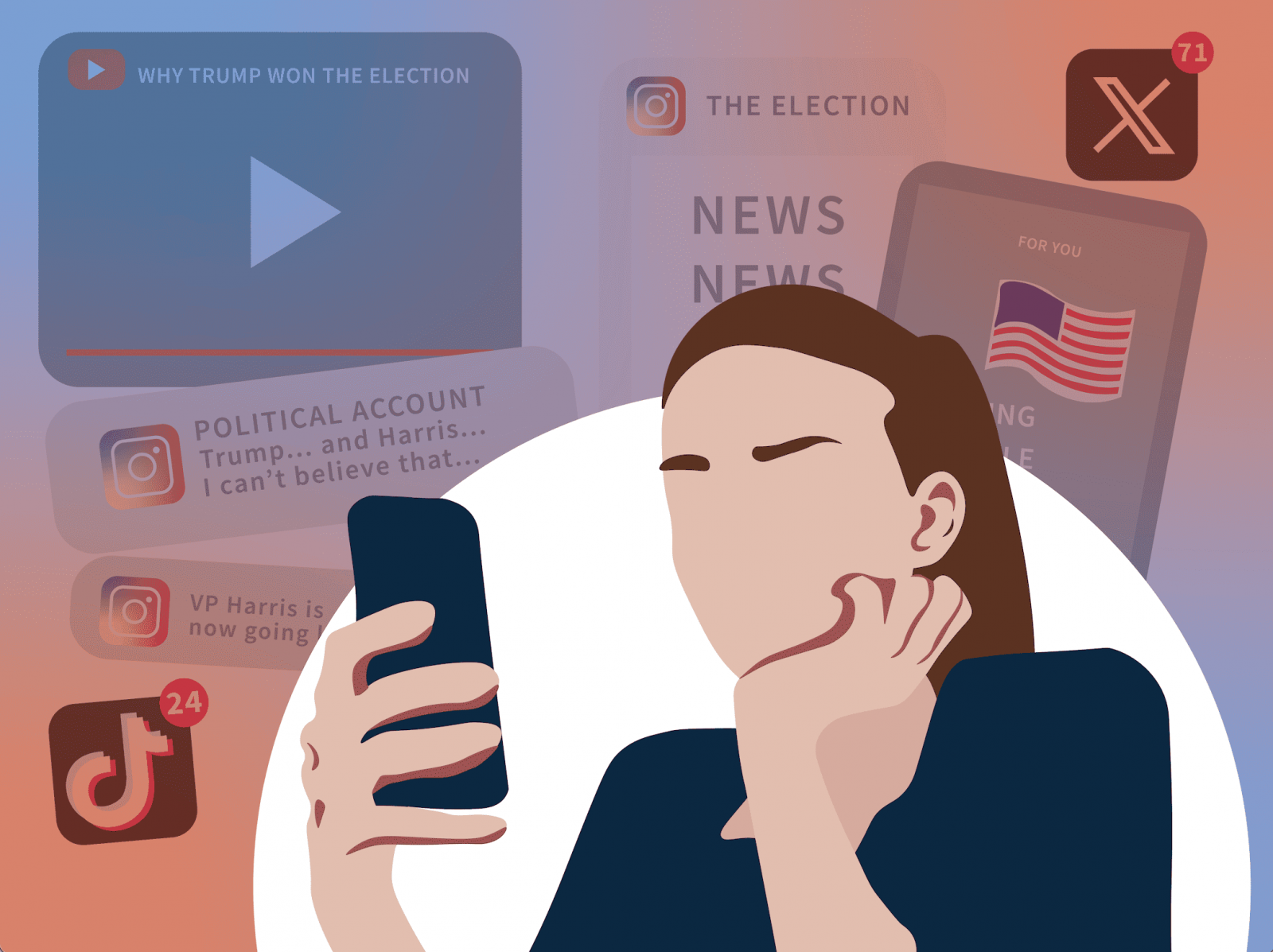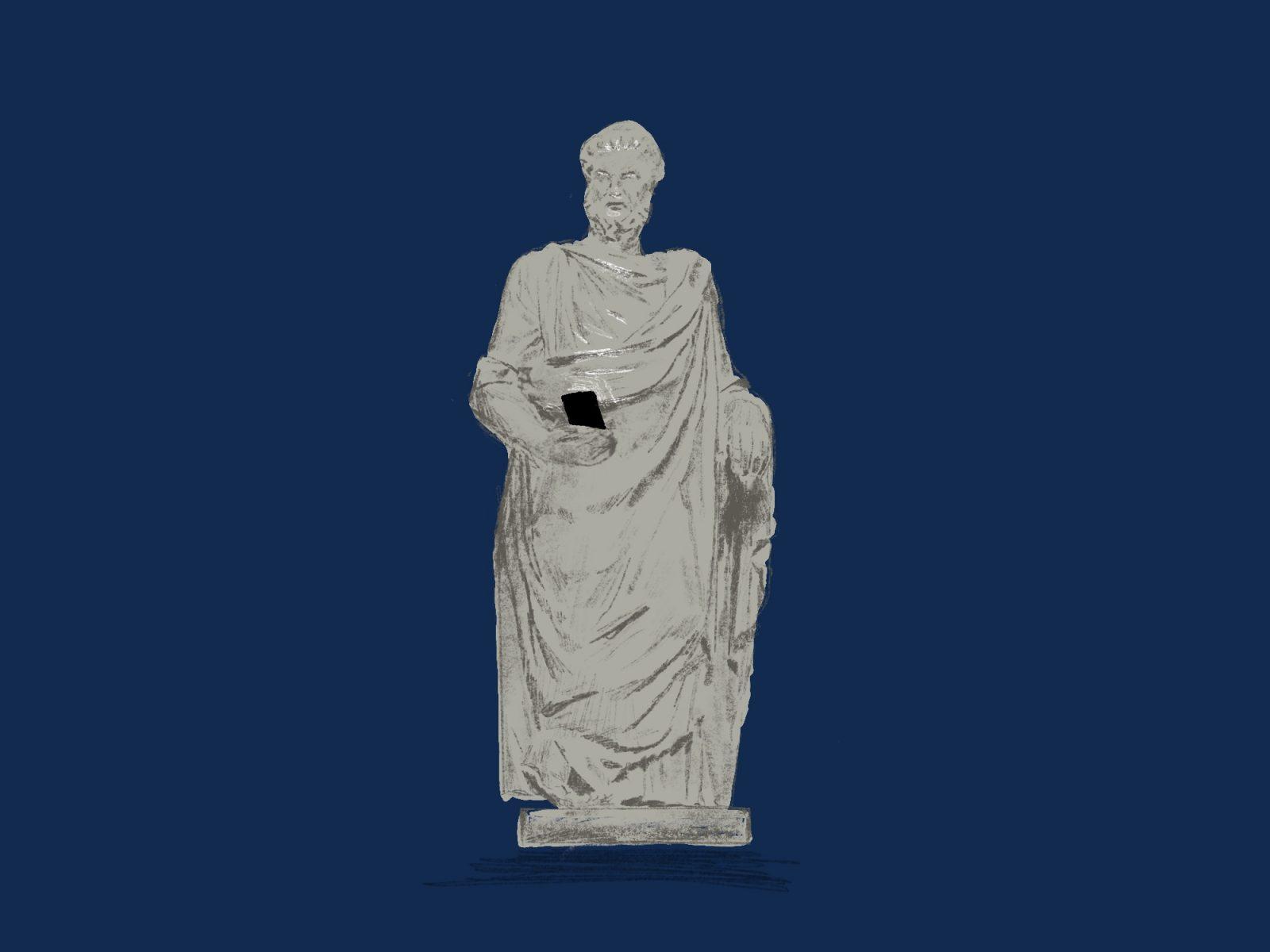Instagram felt eerily similar on Nov. 6, 2024 as it did on June 24, 2022. Floods of Instagram story reposts after any big moment are expected at this point, but my feed on these two days has showcased two very different moral understandings determined by — rather than guided by — one compass: Catholicism.
I find that both days exemplify the persistent and sanctified struggle to maintain a Catholic finger on the pulse of American politics. This may have just been because I went to a Catholic school in Miami, which is predominantly conservative, and I now attend a more liberal-leaning school in Boston. Still, religious beliefs were a cause for celebration in both instances for many of my mutuals.
Before advocating for governmental change based on religious beliefs, people need to think beyond themselves and understand their privilege. This statement has less to do with my political stance or even faith and more with my belief that religion should not be involved in politics whatsoever. Today, one major belief rooted in religion has made its way into policy and obstructed the bodily autonomy of women in many states.
There were two emotions depicted via Instagram story reposts the day after the presidential election and the day Roe v. Wade was overturned: celebratory and scared.
The stark difference between posts after the election results was alarming. No election result should instill such a relentless sense of panic or pious relief that people post their extreme disagreement on social media for everyone to see.
Certain people should not be afraid for themselves while others are satisfied that their choice to follow a religious belief overpowers the right of bodily autonomy.
Religion is more of a bias than an objective truth. The reason I bring up religion in regard to Nov. 6, the day of the election results, is because the celebratory posters were either happy that Donald Trump was in office or that the choice to subscribe to a particular faith was being amplified in government. Simultaneously, Catholicism is used as a platform to demonize same sex marriage, ridicule transitioning and question the LGBTQ+ community’s worthiness of rights.
Many reposts referred to Kamala Harris as the most anti-Catholic presidential candidate in American history and celebrated that Jesus was back in Congress. Florida also had two amendments on the ballot regarding marijuana and abortion. When they weren’t passed, many reposted messages and pictures saying, “God is Good,” or other religious praises.
The United States was founded as an escape from England’s religious tyranny, and the founders went on to separate church and state. Flash forward to today, and we have completely turned on these ideals and it is evident in social media.
Philippians 2:3-5 taught: “Do nothing from selfish ambition or vain conceit. Rather, in humility value others above yourselves, not looking to your own interests but each of you to the interests of others. In your relationships with one another, have the same mindset as Christ Jesus.”
This teaching calls for consideration of others. However, involving religion in politics is a selfish effort, especially when the repercussions are as dramatic as what we are facing today. Such narrow religious views are being now imposed on people who do not even follow the faith.
The concept of religion being integrated into politics could be beneficial. Most religions believe in a greater good, a commitment to love others, some sort of hope for humanity, et cetera.
However, focusing on how one religion can be used to aggressively restrict the lives of everyone nonconsensually does not promote these godly values.
In the Catholic faith, it is taught that those who die in God’s graces will surely go to Heaven and those who don’t will go to Hell. So, why are we taking it upon ourselves to impose hellish realities on people who do not identify with the beliefs of one religion?
The point of the United States of America is to be a truly secularized institution that represents all. Celebrating governmental change that results from intolerance and hiding behind religion is unnatural and should not be a recurring theme of that institution.
Yes, the majority of the country voted for one person, but his reasoning for policy and righteousness should not be rooted in a certain interpretation of the Bible. In the end, the determining factor in how a society should compose itself should not be one book of one religion.





























































































































